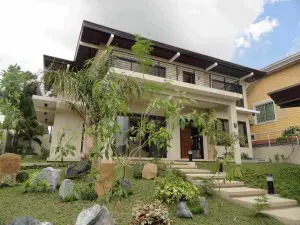Despite some Filipinos living solitary lives overseas, majority of them have still managed to own properties in the Philippines. The reasons for this are many and varied. For one, it is always a wise choice for someone else to own a property at their homeland for investment, retirement asset or a refuge in the event of urgent evacuation.
During summers and holidays breaks, these properties can likewise serve as their house retreats. Filipinos based abroad can also make additional profit out of these real estates; for example, rentals. Philippines has one of the highest rentals in Asia, so this is a potential lucrative business for them. Last but not the least, property prices in the Philippines are one of the lowest in Asia. So, there is no doubt why Filipinos (even foreigners) are highly interested in investing properties in the Philippines.
 Requirements
Requirements
Buying properties in the Philippines comes with loads of paper work. Firstly, prime the needed amount of cash! If you are not a cash buyer, consider filing for loan. Document requirements for loan vary on the banks or companies offering the loan but the most common ones are the following:
– Special Power of Attorney (SPA)
– Proof of income
– Proof of billing (in the Philippines)
– TIN
– Consularized certificate of employment and compensation
– Contract (should have seal and signature of the employer)
– Downpayment through post dated checks
– Bank statements
– Marriage contract
– Passport and other valid photo-bearing IDS
Note: If the SPA is signed abroad, it should be consularized which means the signed document) should be brought to the consular office. Consularization is similar to notarization in the Philippines.
Procedure
Choose a representative who will act on your behalf to process the transfer of property. The buyer should secure and sign a Special Power of Attorney to allow the representative to act legally for you. Essential documents should be secured by the both parties. Payment for the property is settled both by the seller and the buyer.
All acquired properties in the Philippines should be registered with the Register of Deeds for legitimate transfer of the property to your name. The main purpose of land registration is to provide public record of the title.
What to Remember when Buying Properties in the Philippines
1. Be certain on the type of property you want to purchase; for example, whether if you go for condominium units, lot only, beach house, the whole house and lot, etc.
2. Deal property-buying with a licensed, experienced broker or agent. They can be of a great help but this option often comes with hefty fees. Dealing directly to the seller however saves much money.
3. Seize a Transfer Certificate of Title (certified true copy). Validate the document. Make sure it is authentic and the property is mortgage-free. Consider hiring a geodetic engineer to survey the land as what was indicated on the technical description of the title.
4. Ask whether the taxes for the property are settled. Confirm payments by asking for copies of Tax declarations and tax receipts.
Reminders: Foreigners cannot own properties in the Philippines with the exception if the spouse is a Filipino, or if the foreigner is a dual citizen — one of which is Filipino.
